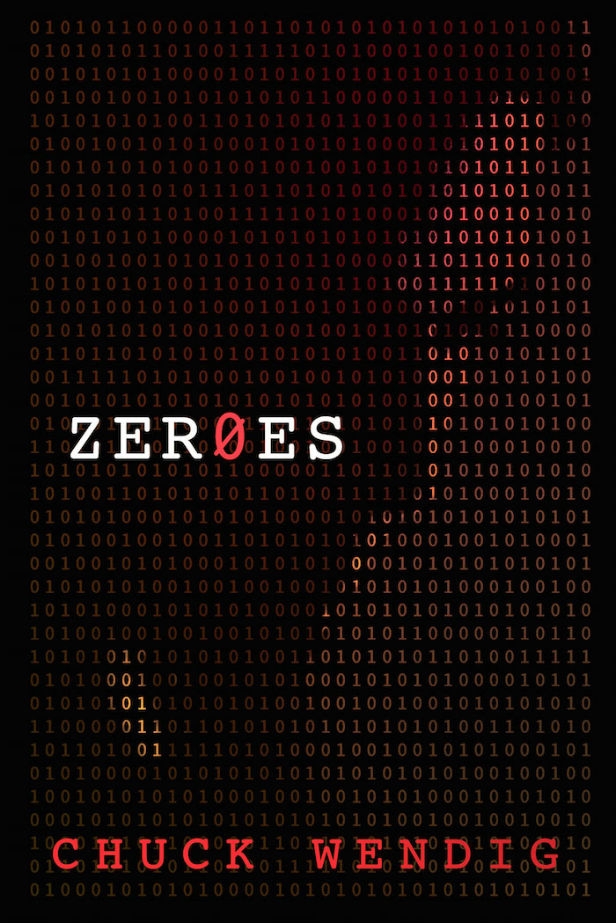Crackpot theories be damned, the government really is onto us – or at least that’s what the black-hat hacker crew known as Zeroes have realised.
When the rag-tag team is apprehended from all across America and forced to work together in the Hunter Lodge for the United States government or face being imprisoned for years, they uncover that the NSA artificial intelligence known as Typhon is not what it seems at all.
What follows is a heart-stopping thriller chock-full of quick-paced action that brilliantly juxtaposes with the calmer, more analytical notion of the privacy and morality issues of black hats turning white in an ever-connected world.
Chuck in a terrifying, dread-inducing assassin that could give the Terminator a run for its money, and Typhon the well-conceived, sinister piece of AI that Wendig cunningly releases sporadic whispers of, and the result is an enthralling storyline.
The only obstacle to this otherwise brilliant piece of cyberpunk neo-noir though is the fact that it’s difficult to trudge through until you are halfway into the book. Prior to that, Zeroes is a messy, patronising affair where events are unnecessarily seen through each of the five Zeroes’ eyes as they happen – we really don’t need to watch, hear and imagine one of the characters smashing up his computer from five perspectives.
It’s also a shame that it’s saturated with an excessive amount of unsubtle pop culture references that are factually wrong; like a “shining Charizard” Pokémon card that is referred to (it’s “shiny” not “shining”), or plain crude like the chapter titled “Trolololol”. It feels lazy to force so many ‘everyday’ references out of the Zeroes’ mouths, in an effort to make the otherwise half-baked characters relatable.
Until you get to these points though, Wendig is very much a ‘show, don’t tell’ author, and he exhibits this skill flawlessly during the more gripping sequences. But in his quest to remind the reader of the how real the threat of ‘Big Brother’ is in today’s world, and what seems to be a side mission in which he boasts his own relevance, some parts feel unhinged and lacklustre.
To be fair to Wendig though, Zeroes is a very meta novel that knows what it’s doing and on which side of the privacy debate it stands. Not only is its discussion of the trials and tribulations of privacy versus state and security, the morals behind turning black hat hackers and terrorists into white hats and the capabilities of the World Wide Web engrossing, it also draws in real-life examples of Edward Snowden and Julian Assange as its raison d’etre.
Zeroes sometimes doesn’t take itself too seriously at all, by making the other characters poke fun at team member Wade Earthman, who serves as the resident conspiracy theorist-cum-cypherpunk. It’s just that in this instance, and what a convenience it is, that Wade turns out to be right.
